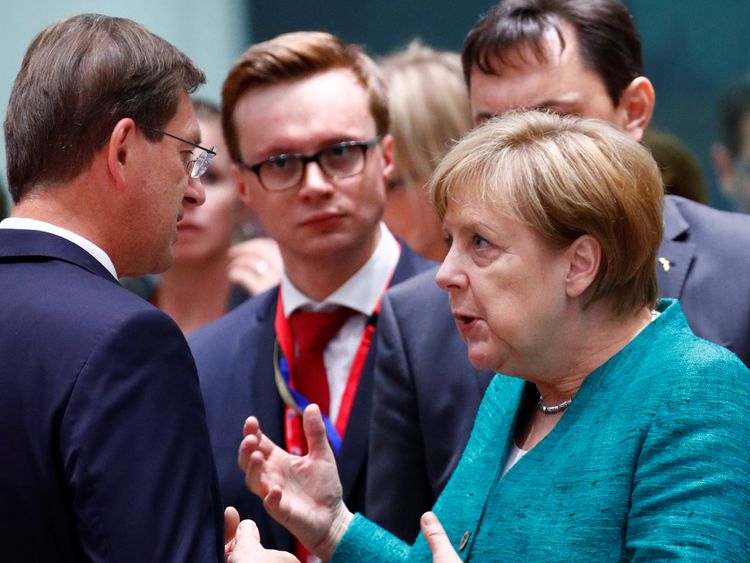
European Union leaders have reached an agreement on how to deal with migration after all-night talks in Brussels to overcome Italian demands for more help.
EU Council President Donald Tusk confirmed in a tweet that the 28 EU "leaders have agreed" on a migration compromise which was at the heart of their two-day summit.
They agreed to set up joint asylum processing sites and restrict migrants' moves with the bloc.
"All the measures in the context of these controlled centres, including relocation and resettlement, will be on a voluntary basis," the joint statement said.
The leaders also agreed to tighten their external border more, increase financing for Turkey, Morocco and Northern African states to prevent migration to Europe.
French President Emmanuel Macron said the deal was "good news".
German Chancellor Angela Merkel echoed his sentiments, but acknowledged that deep divisions remained among member states.
"Overall, after an intensive discussion on the most challenging theme for the European Union, namely migration, it is a good signal that we agreed a common text," Mrs Merkel said.
"We still have a lot of work to do to bridge the different views," she added.
Mrs Merkel had warned that the bloc's "destiny" was at stake if it failed to reach an agreement, with her own job also hanging in the balance as tensions over the issue grow at home.
Italian Prime Minister Giuseppe Conte, who heads a month-old populist and anti-immigration government, had vetoed joint statements for the entire agenda of the EU summit until his demands were met.
Italy has recently refused to let several migrant rescue boats dock at its ports, demanding that the responsibility for people arriving across the Mediterranean should be shared between other countries.
"Italy is no longer alone," Mr Conte said after the migrant agreement.
Prime Minister Theresa May told Sky's political correspondent Beth Rigby that EU leaders negotiated the deal after "lengthy discussions".
She said: "We have come to positive conclusions... which is taking more action upstream in countries of origin so that we can ensure that people aren't having to make and aren't making these very dangerous journeys, often travelling many miles, often at the hands of the people smugglers and making the dangerous trips across the Mediterranean where we still see some people dying."
Comments
Post a Comment